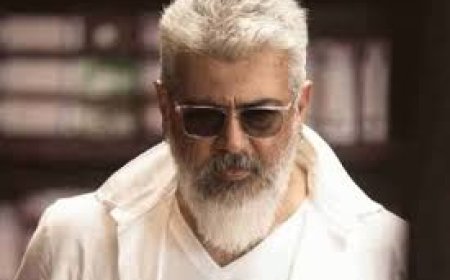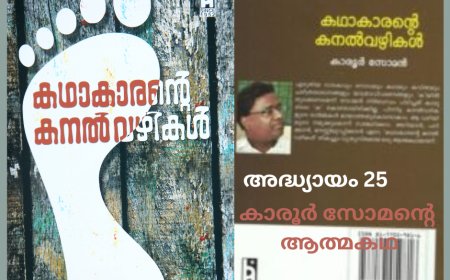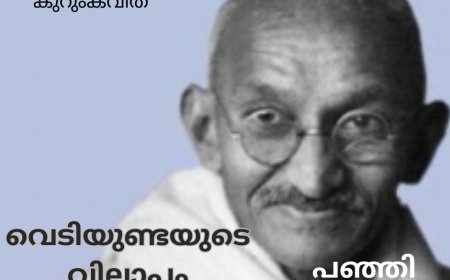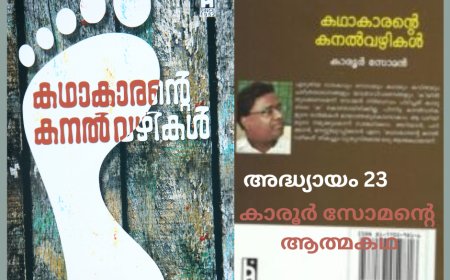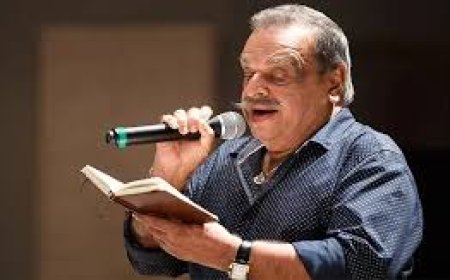Activists protest proposed nuclear plant in Cheemeni, write to Karat
Protests against the proposed nuclear power plant in Cheemeni, in Kasaragod district of Kerala, are gaining momentum with activists from various quarters voicing strong opposition to the project.Prominent anti-nuclear activist K Sahadevan has written an open letter to Communist Party of India (Marxist) veteran Prakash Karat, urging him to oppose the proposal. The letter emphasises Karat’s past opposition to nuclear energy and his support for similar movements, including the high-profile Jaitapur protests in Maharashtra.Sahadevan recalled Karat’s 2011 remarks during a Mumbai press conference, where he criticised nuclear power as “extremely expensive and dangerous” in the wake of the Fukushima disaster. He highlighted the CPI(M)’s consistent opposition to nuclear deals and projects, considering the risks and expenses.Citing the stagnant progress in India’s nuclear energy sector, Sahadevan wrote, “You would not think there has been any leap in India's nuclear energy sector in the last decade. The fact is that even after six and a half decades, the contribution of atomic energy to India's energy mix is only 3% to 4%.” He also noted the lack of advancement in breeder reactor technology and thorium-based projects, initially touted as solutions to the country’s energy needs.Anti-nuclear activist SP Udayakumar, known for leading the Kudankulam protests in 2011, inaugurated a convention opposing the nuclear plant in December 2024. “People of the region are aware of the dangers of this project. They are ready to object to it, with support from across the state and beyond,” Udayakumar told The News Minute.Kerala State Electricity Board (KSEB) data shows that the state currently generates only 30% of its electricity requirement. To address the gap, KSEB has set a target of 10,000 MW installed capacity by 2030, nearly three times its current capacity. However, activists argue that nuclear power is not the solution.Sahadevan’s letter referenced a report by the Atomic Energy Regulatory Commission that identified 135 safety issues in India’s nuclear power plants, 95 of which were classified as very serious. “Who does not know that nuclear power technology is a white elephant? It can only move forward with massive subsidies and government support,” Sahadevan stated.Discussions around the Cheemeni nuclear plant intensified earlier in 2024 when the chairman and managing director of KSEB held talks with the Nuclear Power Corporation of India Limited. In December, a high-level meeting took place between Union Power Minister Manohar Lal Khattar and Kerala’s Electricity Minister K Krishnankutty.Minister Khattar stated that the Union government would approve a nuclear power project in Kerala if sufficient land was made available, identifying Cheemeni as the “more favourable” site. Sources in the Kerala government clarified to The News Minute that no formal request has been made to the Union government for setting up a nuclear plant in the state.In the meeting, Minister Krishnankutty had suggested that the Union government consider establishing a thorium-based power plant outside Kerala, utilising the state’s coastal thorium deposits. He also requested that Kerala be allocated its rightful share of electricity from such a project.The Cheemeni project has ignited resistance not just locally but also from activists across the country. Sahadevan concluded his letter by appealing to Karat’s past legacy: “We are waiting for the patrons of Jaitapur and Kovvada, as the Union and state governments move forward with the Cheemeni project, to dissuade the government led by your party from the nuclear project that you have described as ‘dangerous and expensive’.”As protests escalate and draw nationwide attention, all eyes are on the CPI(M) leadership and its stance on the project.

PROTESTS against the proposed nuclear power plant in Cheemeni, in Kasaragod district of Kerala, are gaining momentum with activists from various quarters voicing strong opposition to the project.
Prominent anti-nuclear activist K Sahadevan has written an open letter to Communist Party of India (Marxist) veteran Prakash Karat, urging him to oppose the proposal. The letter emphasises Karat’s past opposition to nuclear energy and his support for similar movements, including the high-profile Jaitapur protests in Maharashtra.
Sahadevan recalled Karat’s 2011 remarks during a Mumbai press conference, where he criticised nuclear power as “extremely expensive and dangerous” in the wake of the Fukushima disaster. He highlighted the CPI(M)’s consistent opposition to nuclear deals and projects, considering the risks and expenses.
Citing the stagnant progress in India’s nuclear energy sector, Sahadevan wrote, “You would not think there has been any leap in India's nuclear energy sector in the last decade. The fact is that even after six and a half decades, the contribution of atomic energy to India's energy mix is only 3% to 4%.”
He also noted the lack of advancement in breeder reactor technology and thorium-based projects, initially touted as solutions to the country’s energy needs.
Anti-nuclear activist SP Udayakumar, known for leading the Kudankulam protests in 2011, inaugurated a convention opposing the nuclear plant in December 2024. “People of the region are aware of the dangers of this project. They are ready to object to it, with support from across the state and beyond,” Udayakumar told The News Minute.
Kerala State Electricity Board (KSEB) data shows that the state currently generates only 30% of its electricity requirement. To address the gap, KSEB has set a target of 10,000 MW installed capacity by 2030, nearly three times its current capacity. However, activists argue that nuclear power is not the solution.
Sahadevan’s letter referenced a report by the Atomic Energy Regulatory Commission that identified 135 safety issues in India’s nuclear power plants, 95 of which were classified as very serious. “Who does not know that nuclear power technology is a white elephant? It can only move forward with massive subsidies and government support,” Sahadevan stated.
Discussions around the Cheemeni nuclear plant intensified earlier in 2024 when the chairman and managing director of KSEB held talks with the Nuclear Power Corporation of India Limited. In December, a high-level meeting took place between Union Power Minister Manohar Lal Khattar and Kerala’s Electricity Minister K Krishnankutty.
Minister Khattar stated that the Union government would approve a nuclear power project in Kerala if sufficient land was made available, identifying Cheemeni as the “more favourable” site. Sources in the Kerala government clarified to The News Minute that no formal request has been made to the Union government for setting up a nuclear plant in the state.
In the meeting, Minister Krishnankutty had suggested that the Union government consider establishing a thorium-based power plant outside Kerala, utilising the state’s coastal thorium deposits. He also requested that Kerala be allocated its rightful share of electricity from such a project.
The Cheemeni project has ignited resistance not just locally but also from activists across the country. Sahadevan concluded his letter by appealing to Karat’s past legacy: “We are waiting for the patrons of Jaitapur and Kovvada, as the Union and state governments move forward with the Cheemeni project, to dissuade the government led by your party from the nuclear project that you have described as ‘dangerous and expensive’.”
As protests escalate and draw nationwide attention, all eyes are on the CPI(M) leadership and its stance on the project.





























